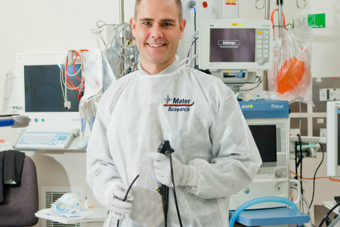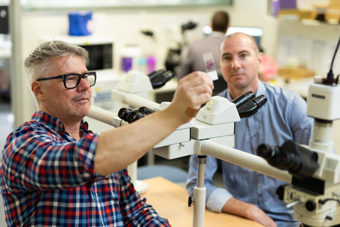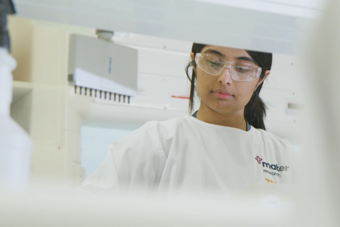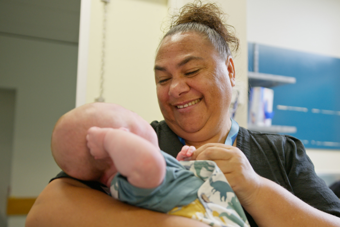Biobanking is storing remaining human tissue that has been removed during a medical procedure such as an operation, a biopsy or a blood test. This extra tissue is not needed for diagnosis or treatment. Written consent is obtained from a donor and the tissue is sent to a biobank, where it is carefully preserved and protected. Scientists use tissues from these banks to study disease and find better ways to diagnose, prevent and treat health conditions in the future.
Mater Research has four major biobanks and these biobanks underpin many programs of research from discovery and translational research through to clinical trials.



